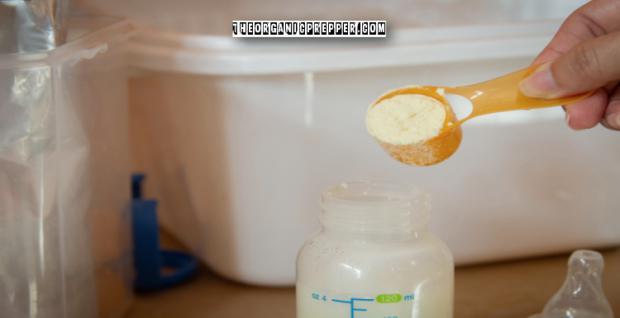
Breaking News
 BANK OF AMERICA SURRENDERS: BofA Just Issued a $309 Silver Alert (Physical Premiums Exploding)
BANK OF AMERICA SURRENDERS: BofA Just Issued a $309 Silver Alert (Physical Premiums Exploding)
 Steve Witkoff says they are close to finishing "a prosperity agreement" for Ukraine,...
Steve Witkoff says they are close to finishing "a prosperity agreement" for Ukraine,...
 NOW - Starmer says a declaration of intent has been signed...
NOW - Starmer says a declaration of intent has been signed...
 Remarks at the New Jersey Bankers Association, Jersey City, New Jersey
Remarks at the New Jersey Bankers Association, Jersey City, New Jersey
Top Tech News
 The First Production All-Solid-State Battery Is Here, And It Promises 5-Minute Charging
The First Production All-Solid-State Battery Is Here, And It Promises 5-Minute Charging
 See inside the tech-topia cities billionaires are betting big on developing...
See inside the tech-topia cities billionaires are betting big on developing...
 Storage doesn't get much cheaper than this
Storage doesn't get much cheaper than this
 Laser weapons go mobile on US Army small vehicles
Laser weapons go mobile on US Army small vehicles
 EngineAI T800: Born to Disrupt! #EngineAI #robotics #newtechnology #newproduct
EngineAI T800: Born to Disrupt! #EngineAI #robotics #newtechnology #newproduct
 This Silicon Anode Breakthrough Could Mark A Turning Point For EV Batteries [Update]
This Silicon Anode Breakthrough Could Mark A Turning Point For EV Batteries [Update]
 Travel gadget promises to dry and iron your clothes – totally hands-free
Travel gadget promises to dry and iron your clothes – totally hands-free
 Perfect Aircrete, Kitchen Ingredients.
Perfect Aircrete, Kitchen Ingredients.
 Futuristic pixel-raising display lets you feel what's onscreen
Futuristic pixel-raising display lets you feel what's onscreen
 Cutting-Edge Facility Generates Pure Water and Hydrogen Fuel from Seawater for Mere Pennies
Cutting-Edge Facility Generates Pure Water and Hydrogen Fuel from Seawater for Mere Pennies
Cresson Kearny's Infant Formula

Once upon a time, there was a man by the name of Cresson Kearny. A nuclear war researcher throughout the Cold War, Kearny was obsessed with the threat of nuclear annihilation. After all, that was his job.
After a brief stint in Panama at the dawn of World War 2, Kearny was shipped overseas to China. The Japanese had already invaded Manchuria, and the sight of starving mothers and babies was a regular sight for the man as he witnessed thousands of Chinese attempt to flee from the widespread rape and murder that accompanied the Japanese invaders. (This was before communist politicians in the USA helped Mao Zedong take over China.)
Of his experience overseas, Kearny wrote:
"Few Americans have watched babies starving. In China, I saw anguish on starving mothers' faces as they patted and squeezed their flat breasts, trying to get a little more milk into their weak babies' mouths. I saw this unforgettable tragedy in the midst of tens of thousands of Chinese evacuating on foot before a ruthless Japanese army during World War II."
Not here.
Kearny loved his country and couldn't bear the thought of witnessing the same on American soil. He knew that a nuclear strike would be accompanied by famine, however, and he set out to do something about it.
Landing a job at the Oak Ridge National Laboratory, Kearny spent years analyzing the problems that surrounded the threat of nuclear war.
What he had seen in China had been burned into his mind. Having small children of his own, Kearny wasn't going to passively wait for trouble to come. He was a man, and a man's job is to provide for and protect his family.
(For more information on building up your food supplies, check out our free QUICKSTART Guide to building a three layer food storage plan.)
He was going to do just that.
Through his government research at Oak Ridge, one of the things he ended up doing was creating an emergency food supply ration for babies. He knew that babies needed food after an emergency strike just like anybody else, and he wanted to ensure that they were well taken care of. Key to that was infant formula, and Kearny knew that babies were going to need it.
He ended up coming with the following emergency food supply that Americans should stash away to keep their babies from starving. The following numbers, according to Kearny, will keep a single baby alive for six months:
32 pounds of instant, non-fat, dry milk
12 pounds of vegetable cooking oil
8 pounds of sugar
A jar of multivitamins
Kearny broke this down into a daily ad hoc formula that he was going to use to feed his infant children in the event of a nuclear strike.
His plan was to craft the following recipe:
1/3 cup + 2 teaspoons of instant non-fat milk powder
1 and 1/3 cup of boiled water
First, Kearny would add the milk powder to the boiled water, stirring the mixture thoroughly. Next, he would add 1 tablespoon of vegetable oil and 2 teaspoons of sugar, stirring thoroughly once more.
Kearny noted that while a larger batch could be made to last for 24 hours, it was safest during times without refrigeration or when it was hot outside to make three smaller doses (the recipe above is the "smaller" dose).
While he was a huge proponent of breastfeeding for disaster mitigation purposes alone, Kearny also understood that there were times when this simply wouldn't be possible. He wanted American babies to get the chance to live, and it was because of this Kearny spent so much time experimenting and writing within the lab.
Worried that in the event of a nuclear war, babies wouldn't get access to plenty of vitamins and minerals, Kearny advocated the use of keeping a stock of standard daily multivitamin pills on hand as well. According to Kearny, these could then be ground up into a fine powder and dissolved in a bit of water for the baby to drink. This would keep babies from developing diseases related to vitamin A, B, and C deficiencies, Kearney said.



